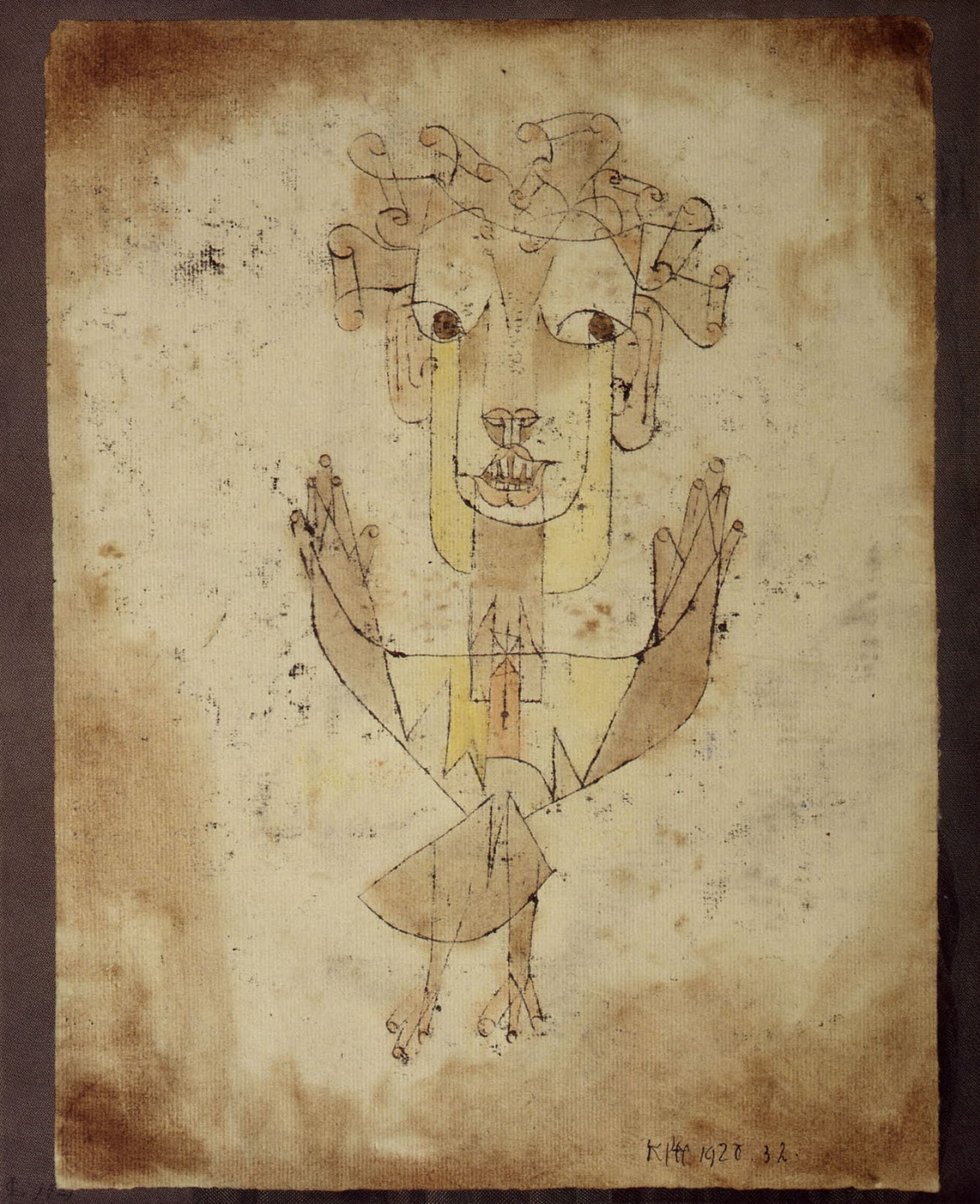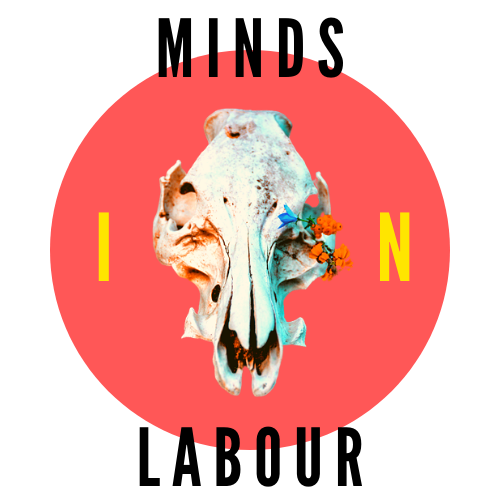Modernity is impatient. It likes to rip things apart. With its relentless innovation and an insatiable lust for the future, it dismantles ways of living before they even emerge properly. To be modern is to be disruptive, which automatically puts every new generation at odds with the traditions of the previous ones.
Walter Benjamin, a philosopher and critic, poignantly described the wreckage of this progress. While describing Paul Klee’s painting ‘Angelus Novus’ he wrote:

“His eyes are staring, his mouth is open, his wings are spread. This is how one pictures the angel of history. His face is turned toward the past. Where we perceive a chain of events, he sees one single catastrophe which keeps piling wreckage and hurls it in front of his feet. The angel would like to stay, awaken the dead, make whole what has been smashed. But a storm is blowing in from Paradise; it has got caught in his wings with such a violence that the angel can no longer close them. The storm irresistibly propels him into the future to which his back is turned, while the pile of debris before him grows skyward. This storm is what we call progress.”
It is precisely this breathless movement which fills a person with uncertainty and confusion, especially when the various modernisms are unable to create a viable, seductive alternative to the traditions they destroy.
Back to the Past
We live in an age of nostalgia. Everywhere we look, there is a yearning to go back to the past. The identitarian politics of both the left and right are calling for a social regression to the era before the current phase of globalization or modernism existed. Calls for ethnostates with one identity, one race, one religion, one language, and one tradition become louder each year.
Underneath this nostalgia is a deep sense of disconnection and isolation. Modernity is blamed for uprooting us. And traditions are supposed to be our salvation.
This traditionalism presumes that a social structure from the past can exist without the conditions which produced it in the first place – an impossible proposal. It is as if the economic, technological, historical and ecological changes have no effect on societies or cultures. In other words, this traditionalism proposes another form of disconnection; a separation between how we live from what we do to live, between culture and context. (I would like to see how these traditionalist forms of organization tackle global climate change, the AI revolution, or indeed manage the global economy.)
The Need to Be Rooted
Despite the question of efficacy, there is no doubt about the fact that this call for going back to the past conjures up strong emotions in the public. It is definitely a reaction to some lack in the project of modernism which we have not rectified yet, even after centuries.
The exhilarating acceleration of modernism ruptures our relationship with our ancestors and our pasts. And no matter how much we focus on the future of humanity, our self has a history to it which extends beyond our individuality. This relationship with the people who have preceded us expands our sense of the self and keeps us rooted to our world.
The traditionalists have maintained a certain kind of ownership over this concept of rootedness. This is mostly because the forward looking spirit of modernism considered the past as a baggage – a burden which needed to be abandoned. Indeed, this spirit of rebellion became so strong that the modernists often adopted an antagonistic attitude towards the modern masters themselves. This obviously gave very little space to this need of being rooted in the cultural narrative. The ultimate result of this neglect is that we have a conception of being rooted which is synonymous with being repetitive.
You can only connect to your history and ancestors if you live like they lived.
Essentially what this means is that being modern and being rooted are contradictory ways of being.
However, this contradiction only arises out of a lack of imagination. Our connection to the past can take many different forms other than copying how our ancestors lived. Indeed, it is a very simplistic way of looking at heritage because it presumes that our ancestors lived in the same way for eons, that they had no innovations or cultural changes, and their lives had no disruptions or rebellions. It is as if our ancestors were clones of each other and it is only in this era that we could evolve and change in a cultural context. This view contradicts both facts and good sense.
Can One Be Modern AND Rooted?

So what does rootedness mean in a modern context? Before we can answer this question, we have to clarify what modernism means here.
Modernism is any social, cultural, political and economic movement which tries to rehabilitate humanity to the latest phase of modernity. Modernity, on the other hand, is the progressive scientific, technological and infrastructural change which has continued to occur and accelerate after the 18th century. (Such as the industrial revolutions, agricultural revolutions, and the digital revolutions witnessed by various societies.)
The main features of all these movements include innovation, flux and constant need to ‘move’ with the times. This is both embedded into the value system of modernism and is its necessary feature since the march of modernity has only intensified with the passage of time.
This march is given a specific goal by the cultural movement of modernism — that of ultimate human progress. A historically unique view emerges where society is supposed to exist as a medium for all individuals to pursue their happiness and wellbeing. Society finds its justification in people rather than people justifying their existence through society. And accordingly society is modified by them, either through reform or revolution, to align it with the needs and the wants of the citizen.
In the peak of every phase of modernism an enthusiasm spreads like a contagion where the horizon of possibility seems limitless and things which seemed improbable throughout history are suddenly within grasp. The abolishment of slavery, individual rights, democracy, peace and freedom are all ‘impossibilities’ which modernism made possible.
The eternal yearnings and desires of humanity which remained suppressed and unfulfilled since the dawn of civilization are now commonplace in many parts of the world. It is this transformation of the hypothetical into the real which connects us to the ancestors who form our history. It is this bond that can resuscitate our sense of rootedness without divorcing from the spirit of modernism.
The traditional idea of rootedness tries to find what the present ‘lacks’, in the past. The modern idea strives to complete the lack in the past through our own present lives.
Instead of a mere repetition, this latter idea seeks to explore those aspects of our ancestors’ psyches which could never fulfill themselves. It is informed by those desires which perhaps could not succeed in its goals, but binds us more intimately to our predecessors than any other custom or ritual.
Of course, it takes more commitment, more knowledge, more research into the lives and thoughts of the people who preceded us and unlike the traditional methods, we cannot rely on ready made stereotypes. But this view seeks a genuine connection, an authentic relationship with the lived history which has formed our identity. At a larger level, it seeks to ‘complete’ the overall internality of humankind and make it whole.
We can already see glimmers of this kind of rootedness all around us. A daughter fighting to get educated, keeping in mind her illiterate parents; a son who feels more committed towards his art because his father could never follow his own passion, but supported him instead; the grandchild of a holocaust survivor who is an activist against all forms of genocide; or a scientist who feels connected to the whole human history when he succeeds in shedding some light on the fundamental reality of nature. These are all examples of rootedness without tradition.
This sense of completion and contribution to the historical consciousness of humankind can be the type of rootedness which can cure the terminal nostalgia for dead ways of life.
Instead of repetition, we can develop intimacy, instead of customs, we can build achievements and instead of tradition we can create innovation.
